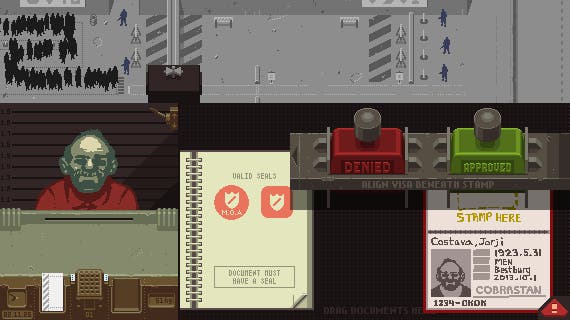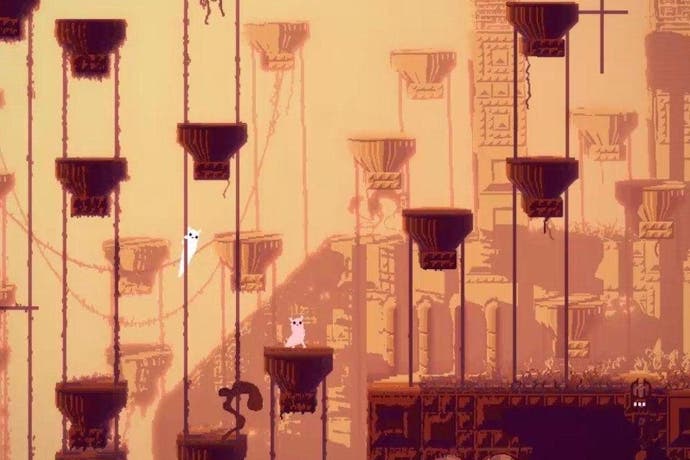Steam Greenlight had to go, but its replacement might just work
Direct is a reasonable solution to one of Steam's most serious problems
Steam Greenlight, Valve's process for finding new games to place on the store, will soon be gone. In a few short months Valve will replace it with a much more straightforward system they're calling Steam Direct because, well, it's a more direct method of getting onto Steam. I know, I know, I don't know how they came up with the name either.
For anybody browsing the store, it'll make little to no difference in the long run though I'm sure by this time next week there will be a thousand think pieces, a thousand videos by shouting, visibly angry men and a bucketful of tweets to throw into the ocean never to be seen again which all predict the sky will fall, all the games will be lost in the noise, quality will go down and a plague of locusts will nibble at the toes of your first born.
They will all be wrong. Except the bit about the locusts, that's just the natural end to 2017 really. I'd start taking precautions if I were you.
The very idea of 'too many games' that many will lean on is absurd the moment you give it more than a moments thought.
There are not too many games on Steam in the same way there aren't too many songs on Spotify, there aren't too many books in libraries, I'd say too many films on Netflix as well but I'm in the UK and we only have six and a picture of a swan threatening to break your arm or something. Just pretend I'm not in the UK if it helps. You all know what I mean.
Either way not only is the claim of too many games a ridiculous thing, it's misunderstanding the problems Valve (and by extension, us) face.
The problem (if we really must call it one) isn't one of finding a good game amongst the crap, it's finding a good game amongst a whole load of other good games that might not necessarily interest us. Not every game made will interest us, a fan of only dense role playing games may have little interest in a visual novel about romancing a salmon or a walking simulator about a boy called Timmy who steals ducks.
This is why Valve have been focusing on what we call 'discovery' - how to show the right games to the right person, keep an element of surprise to things and how to work towards making rummaging around as easy as possible.
If we really must use a real world analogue, think of it as finding the best way to get supermarket aisles signposted whilst still hoping customers remember they always wanted some toothpaste as they're browsing soups.
I'm sure that's helped make everything so much clearer anyway. Ahem.
It's not an easy problem to solve but it's one Valve have been chipping away at for quite a few years now with a fairly large measure of success. The concept of Steam as a heavily curated store has been dead for around five years now in practice, in theory much longer. Valve's stated aim has always been to have every game they can get on the service, the larger issue has been managing how to get them onto the store with only so many humans at the helm and how to maintain sales whilst doing so.
This is where Greenlight came in and as we all now know, sort of fell on its virtual bum a bit. Hence the need for Steam Direct. It is developers who'll hopefully see the benefits of the system first. Whereas Greenlight had long devolved into a holding pen that games just kind of sat in, waiting for someone from Valve to notice them, Direct removes that particular issue.
In the simplest terms, game devs or publishers will effectively be buying slots on the store for each game they place on there. It's an interesting approach and one that sits at odds with the usual industry routes. Mostly folks in the PC space either get to throw their games up onto a store for nothing (hello itch.io or Gamejolt) or pay a yearly rent to keep their games on the store (see Apple's App Store there, amongst others). Valve's approach is, price depending, better than asking for rent money. Whether it beats a more free for all will remain to be seen.
The intent behind asking for money here is not to charge to prove someone is good at making games or serious (because by now it should be obvious there is little relation between having money and being a serious maker of games) but simply to slow the tide of submissions coming in by asking folks to pay up some cash.
I'm going to argue out the gate that it's essential that this fee be as low as possible. It needs to be enough that it takes some of the shine off flooding Valve with Half Life 3 Episode 7:The Vortigaunts That Meet At The Caffs but not so high as to deter folks working on a tight budget. You know, unless we want to return Steam to its pre-2010 state. Which I know some folks have fond memories of and believe this would be all flowers and sweeties but it'd be a bit of a disaster all round and reverse so much progress.

To put it another way, I don't want to see my friends and peers who make good work fundraising to get onto Steam. I also don't want a situation to arise where predatory publishers emerge, waving their wallets around and then lock people into terrible contracts. Both of which I can pretty much guarantee will happen if the cost is even slightly too high.
On paper, I'm hopeful for the new system. Steam Direct sounds like a reasonable solution to some serious problems that delay games getting into the hands of people who would want to buy them on Steam. As you'd expect, much hangs on how Valve tackle the awkward things that always come up in video games when stuff like this is introduced and especially in how expensive it'll be to submit a game to the store
Time will tell but for now, I'm happy with how things are turning out and looking forward to being able to find so many more games to play and more games finding their audience in just a few months time.
There will be some tremendous fights and so much arguing in between now and Steam Direct's launch but I'll be sitting back playing video games so you know, whatever. I've got my pinkies crossed for the best. Experience has long taught me that's the best way to approach these things so I'm sticking with it. Let's see how it goes.


